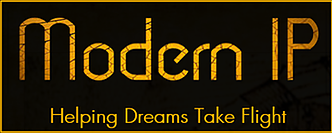This week I am pleased to feature Cyntia King. She has been described as a “Powerhouse intellectual property broker.” She’s spent 10+ years buying/selling IP (domains, TMs, patents, stock symbols, business DBAs, phone #s, and more) with prices ranging from 4-7 figures. Ms. King launched her own IP consulting company, Modern IP, in 2017.
Mike: What you do doesn’t seem like something one can learn at school. How did you perfect your craft? Did you have mentors along the way that have helped you develop?
Cyntia: I enjoy a challenge and have been lucky enough to be in the right place/time for some unique opportunities.
My career in IP started when a neighbor complained that he was too busy. His job sounded interesting, so I pressed for an interview, which I got a month later. My fascination with the industry was immediate. And that neighbor – Dane Hill – turned out to be an amazing mentor. He answered endless questions & offered a level of support most people never get.
The fact is that I love the work. Mark Cuban said, “Sweat equity is the most valuable equity there is. Know your business and industry better than anyone else in the world. Love what you do or don’t do it.” I’ve actively looked for opportunities to expand my knowledge and skills. I asked for the toughest and most unusual cases; networked with the most knowledgeable professionals, and have made an effort to be honest and equitable in my dealings with clients and colleagues. Like the man said, love it or don’t do it.
Mike: Being a woman in business can sometimes present challenges. Have you found that to be true in your career? If so, please expand on that.
Cyntia: I got my gun safety certificate at 13, tried out for the wrestling team as a freshman, was a featured dancer in a college production, managed a heavy metal band, ran the front office of a modeling school/agency & have succeeded in a field dominated by men. Obviously, I’ve never been overly concerned about gender roles and I have to admit that I rarely register gender bias. While I’ve seen a decidedly male bent in the industry (like domain conference finales at the Playboy Mansion), I haven’t encountered anything I couldn’t overcome. In the face of bad behavior, I acknowledge it, address with a little humor, and get back to work. I do love the work.
Mike: What advantages and disadvantages have you found having a female-owned business?
Cyntia: The biggest challenge I have as a business owner is work-life balance. I know this is true for most executives, but I do believe there’s still an expectation that women fill the role of primary household caretaker. It’s tough to balance client obligations and family responsibilities. There are many days that I think I need a wife of my own. My best advice to women in business is learn to say “no”. You’re better off to acknowledge that you can’t be all things to all people, so be honest about what you can do.
Mike: Would you consider yourself a role model to other young women in the industry?
Cyntia: I’d like to think of myself as more of an inspiration than a role model. I’m the person who prefers to take the path less traveled. That track is both uniquely beautiful and full of potential difficulties. Every person who steps off the beaten path has to navigate the course in their own way and I absolutely support that kind of individuality.
Mike: Obviously, intellectual property is important, but many small businesses don’t realize they need to trademark, patent, or otherwise protect and secure their IP. What advice do you have for small businesses?
Cyntia: According to Ocean Tomo (a capital advisory firm), the average intangible asset value of S&P 500 companies is 84%. That’s huge.
Most new businesses, though, start by concentrating on their product/service. It’s only after they’ve achieved some success that they think about protecting their intangibles. By this time they could well be a victim of their own success. The marketplace is full of stories like: (1) the company that sees market traction only to be served with a C&D letter demanding they change their name because someone else already has the trademark; (2) the business that finally gets venture capital funding only to find that the domain name they need is now an order of magnitude more costly because the registrant read about the investment; or (3) the scammer who monitors the Trademark office for new filings, then goes out and registers the corresponding domains.
Bottom Line: It’s important to have an intellectual property plan and that often means consulting an IP professional.
If you like this post and want to sponsor it on Domaining.com, click HERE.




5 comments
Great interview! I agree with both of you that you can’t learn these skills in school.
@Michael, thanks for stopping by. Maybe it should be taught in school 🙂
Thanks, Michael.
The most important lesson from my favorite HS teacher was that school provides the basic knowledge to go out, choose your dream job & learn the skills to do that job.
There’s no substitute for hands-on mastery of your chosen field.
Nice interview!
Hadn’t seen that 84% figure before.
I hadn’t either, that’s higher than I would have imagined but it makes sense in todays environment.